
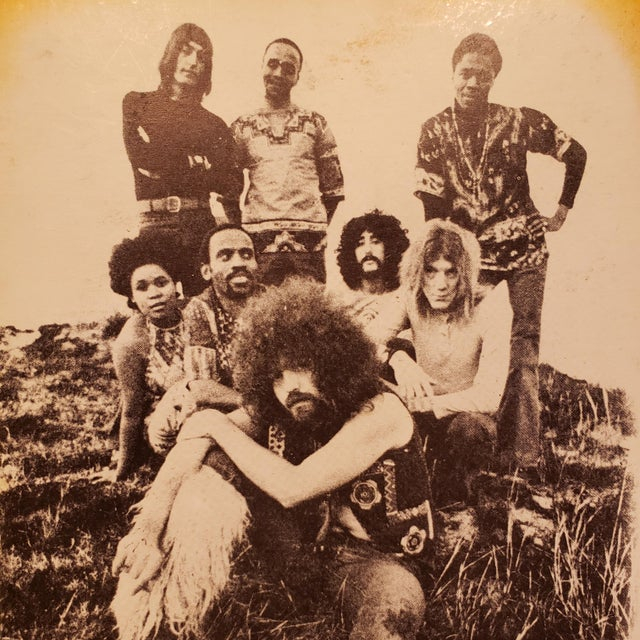
The online South African Rock Encyclopedia covers the history of South African rock music from the 1950s up to the early 2000s. All this information is made freely available to the public.
Home > Rock Legends > 1970s > Hawk
Biography | Discography | Musicians | Related
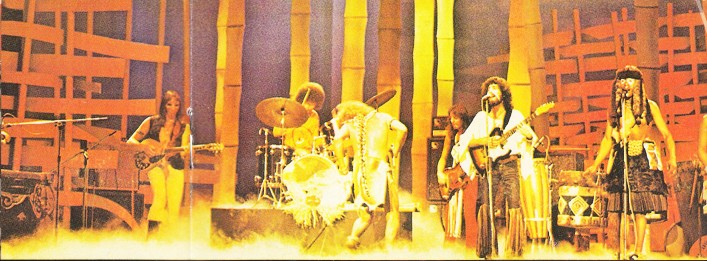
Hawk
Sleeve notes from 2010 CD re-issue of "Live And Well"
The year is 1973 and in South Africa, the stranglehold of apartheid and the oppression of its opponents is increasing all the time, the noose growing ever tighter. These are dark and dangerous times and the watershed 1976 Soweto student uprising – which began a chain of events that would ultimately lead to the collapse of apartheid and the birth of democracy in South Africa – is still three years away. These were also strange and scary times, when the law forbade marriages across the colour bar, legislation enforced the separation of the different races – and having friends of different races could land you in trouble with the authorities.
It was also a time of a huge surge in original local music, an era when South Africa produced some of its finest bands. And leading the charge was Hawk, who go against the trend, turned their backs on the music coming out of Europe and America and turned to their African musical roots. Buoyed by the success of their first album, African Day – a thinly disguised commentary of South Africa and its insane politics – in 1971, followed by seminal Africa She Too Can Cry, in 1972, Hawk had already established itself as one of the country's premier rock outfits. Explains Braam Malherbe, a member of the original Hawk line-up: "It (African Day) was political, you know. I mean there's the elephant destroying things left, right, and center – driving people from their land. We were making a huge comparison – if anyone had analysed the words then, they would have realised what we were all about." Like its predecessor, Africa She Too Can Cry, was a concept album, a social commentary on the madness that was South Africa in the 1970s. "Hawk was a concept band and the album "Africa She Too Can Cry", came at the right time, it was meant to be," said Dave Ornellas, former lead vocalist, and frontman for Hawk, the owner of the definitive rock voices of his era. The European release saw the band progress from its original flute/sax/percussion and then, later, keyboard-driven sound, to a new, more powerful twin guitar attack powered by ex-Freedom`s Children guitarist Julian Laxton and founder member Mark Kahn. One of the few multi-racial bands on the scene at that time, Hawk was finding that, while there was much to write and sing about, it was becoming increasingly difficult for the band and its members to operate.
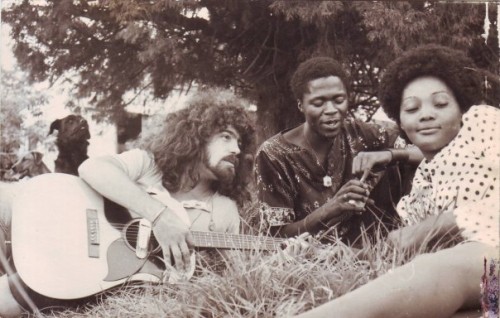
Hawk
Looking back today, Ornellas remembers those bizarre times, with the band finding it increasingly difficult to perform and grow creatively with the noose of apartheid tightening around their necks. "I remember playing at the Klerksdorp Civic Centre. It was surreal: the black members of Hawk were not allowed to appear on stage with their white brothers. But a special concession was made and the black members were allowed to play as long as they were hidden behind a curtain on the stage." At the same time Paddock Farm, in Morningside, in Sandton, where the band had lived since 1969 had increasingly become the focus of police raids because black and white members of Hawk were living there together. "We wanted to develop the African side of our music but it was becoming increasingly clear that we could not do it in South Africa. We needed to spread our wings, break the shackles of apartheid and let the music come through."
Overnight the band was thrown a lifeline when their manager, Geoff Lonstein, signed a deal for them with the London-based Charisma Records. With Charisma driving the band, they soon found themselves working hard in London, including three gigs at the legendary Marquee club, star billing at the Reading Festival, and opening for hard rock group Budgie. And with Charisma, they found themselves part of an impressive stable of some of the biggest bands around, including Genesis, Audience, and Van der Graaf Generator.
Unlike other South African bands that had tried – and failed – before them to crack it in the UK because of work permit problems, Hawk had no problem getting the right paperwork because they were a multi-racial band. Their history of police harassment back home no doubt also helped smooth their entry into the UK. "We arrived in London to great hype, the press all wanted to interview us and we believed we were on our way to the big time. All the journalists wanted to make our arrival political, but we just told them we were there for the music and it would speak for us," Laxton says. "I remember the first big press interview we did in London. It was bitterly cold and we did a photoshoot in a park for one of the papers wearing only the skimpy tribal regalia we wore during our stage act. The story appeared under the headline: The tribe who fled to freedom, neatly summing up the exhilaration and newfound freedom Hawk found in London."
It was a time of concept bands and big, powerful live acts, with outfits like Pink Floyd, Yes, and King Crimson leading the charge. Into this arena Hawk arrived with their fresh African sound and a stage act and presence that blew their British audiences away. For the boys from South Africa, it was a whole new world and, under the expert guidance of Charisma, the band was launched into a whirlwind of gigs, playing the club circuit, concerts and festivals. It was an exciting time for the band as they began building a solid fan base and sales of their album took off, says Ornellas. Along the way Hawk was "discovered" by Belgium, leading to a tour to Brussels. Bizarrely, the band was entered as the Belgian entry for the Eurovision song festival, earning a credible ninth place and winning them an army of faithful new fans in that country. Another highlight was touring Scandinavia at the end of 1973, where they had the audience eating out of their hands. "Here we were in the frozen north, playing full-blown African rock and the audience loved it. We were on such a high."
The highly successful sell-out tour took them to Norway, Sweden, and Denmark with their final appearance at Arhus in Denmark, where they were a highlight of a three-day festival held in an old airplane hangar. "We were billed as "Joburg Hawk, out of Africa, direct from London." Dressed in "war paint" and full Zulu regalia, complete with shields and spears, Hawk was one of the hits of the festival. Remembers Ornellas: "It was one of the most incredible concerts we had ever done. It was also the last real concert we did before things went horribly wrong." Until then things were starting to happen for the band and they were building a loyal audience in Scandinavia, Europe, and the UK, and the world, it seemed, was their oyster.
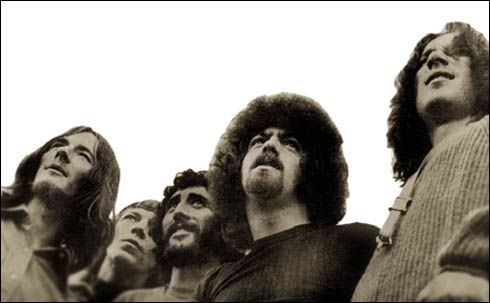
Hawk
36 years later Dave Ornellas remembers… "Slowly Toward the North" (later released as "Live and Well") was to be our next big album, a follow-up to "African Day" & "Africa She too can cry". Our plan was to use an old South African ‘Ten-pound note' for the cover, which when folded in half made two perfect squares & depicted scenes from the Great Trek! Weeks were spent at Island studios, where Cat Stevens had recorded Tea for the Tillerman, etc. Financed by Charisma Records and embellished with overdubs, backing voices and woodwinds, the album was an intricate, interwoven Hawk/Ramsay MacKay masterpiece, a journey, an opera on the Great Trek!
At this time the band was a world-class act with Chris Perry, an English drummer (ex Jericho, whom we had toured within SA), and Julian Bahula (ex-Malombo) creating very exciting rhythm patterns and pulling the band very tightly together. We then heard from our manager, Geoff Lonstein that he had negotiated an American deal and that we would be leaving straight from Scandinavia for the U.S.
This news had highly upset Charisma as Lonstein had only signed the band to them for the U.K. and Europe, keeping the U.S.A. and South Africa for himself. Charisma immediately stopped booking gigs for us and they scrapped the whole album release. Lonstein, meantime had found his way into the studio and with the sound engineer put together a rough mix. And I mean rough. When I returned to S.A. to find that Lonstein had released it as an album called 'Live and Well' with a picture of me from the Reading Festival on the cover… I actually cried. Today I still have memories of how the tracks were meant to flow & how big it originally sounded. Yet I am thankful that there remain some memories of that time, otherwise lost & am thankful to Benjy for giving it another chance.
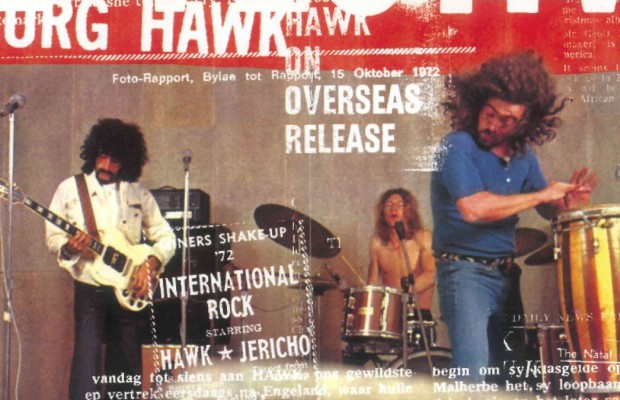
Hawk
Story conclusion: "Lonstein failed to obtain visas for the band and with no gigs booked in London, we starved. Charisma very kindly gave us our return tickets and the bulk of the members fled for home. Spook Ramsay & I stayed on & tried to find some solution to the massive financial loss the band had suffered, but because the new equipment was bought in London in Lonstein's name, Spook & I ended up at Scotland Yard having our fingerprints taken and our passports confiscated, pending the court case. We had been arrested for selling our own African drums. When Lonstein failed to arrive at court three months later, the case was thrown out. Again I want to praise Charisma Records for their help with Lawyers and their amazing support.
And even now, in the 21st Century Hawk's music has stood the test of time – and with this officially sanctioned release of "Live and Well", the final chapter has been written in the short but influential life of the band, one of the most original and influential rock bands ever to come out of South Africa…
Raymond Joseph with additional notes by Benjy Mudie
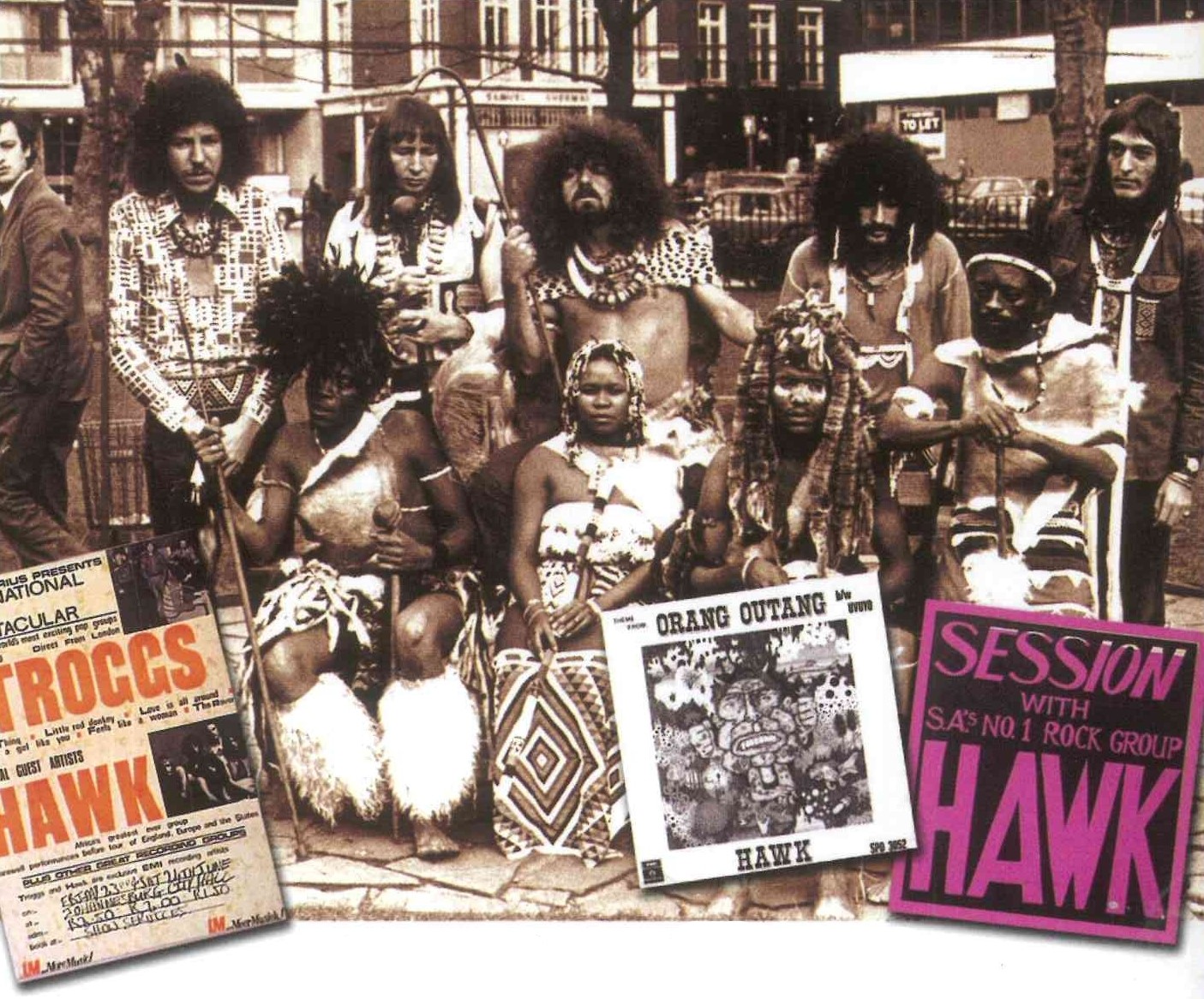
African Day (1971)
Africa She Too Can Cry (1972)
Jo'Burg Hawk (1973)
from Melody Maker, 26 May 1973
Live And Well (1974)
Keith Hutchinson played in the earliest incarnations of the band firstly as bassist then moving on to woodwinds and keyboard. I was friendly with both him and Braam since we were all from Springs and played together as we tried to get our musical careers off the ground. Springs was a marvellous supply house of musicians in all the top bands at the time - as later shown by the Radio Rats.
Rob Bezuidenhout, July 2006
P.S. [Radio Rats lead singer] Dave Davie's nickname in Springs was "Boertjie" - drove a mighty Dodge Charger.